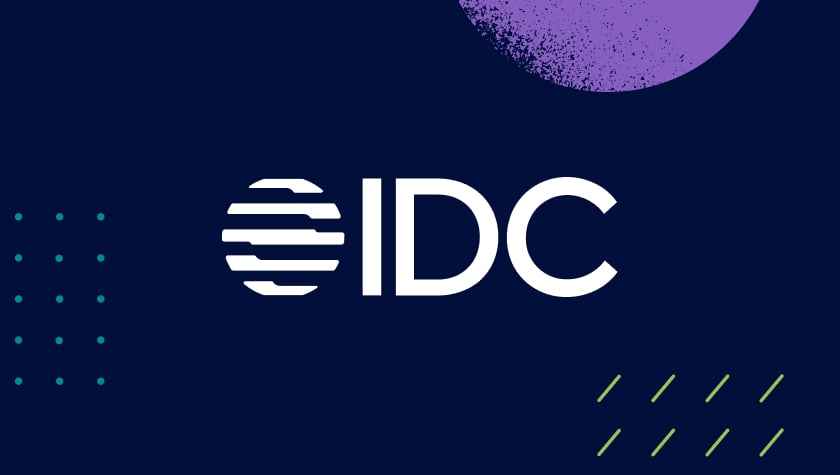
Another Money 20/20 has come and gone, and with it, our 2nd Financial Crime and Technology Summit. The Summit featured risk management and AI executives from Citi, Microsoft, NASDAQ, Varo Money, Aite Group, BioCatch, IDC, Paysafe Group, and Point Predictive, as well as, Feedzai’s subject matter experts. They shared best practices in risk management, operationalizing AI and data, and discussed the most pertinent anti-money laundering (AML) and fraud trends impacting financial services today.
Here are five key insights from the 2019 Financial Crime and Technology Summit at Money 20/20 Las Vegas.
Financial institutions need tools to allow them to see financial crime.
Nouriel Roubini, renowned economist and NYU professor, who is also a former advisor to the Clinton administration, the IMF, the Federal Reserve, the World Bank, and more, gained public recognition when he predicted the global recession of 2008.
Roubini joined Feedzai CEO Nuno Sebastiao on stage to offer practical advice on how financial institutions can improve their security and trust reserves to get ahead of the next recession. During their discussion, Roubini acknowledged today’s fraudsters use the same sophisticated technology to commit financial crime that institutions use to fight financial crime. His biggest piece of advice was to leverage machine learning and big data to battle these crimes. Nouriel said, “If you have the right analytical tools, data, and intuition, you can see when there is a build-up of excesses that will eventually lead to a tipping point and a financial crisis.”
In 2020, there will be even more fraud.
Frank Mckenna, Chief Fraud Strategist at PointPredictive and writer of the Frank on Fraud blog, shared his predictions of what the fraud landscape in 2020 will look like.
His predictions for 2020 include a rise in:
- Synthetic identity fraud, a combination of falsified or stolen identities that are not associated with a real person, which can’t be prevented by credit bureaus;
- Wire fraud, which is already becoming harder to detect; and
- Application/account opening fraud due to growing levels of first-party fraud where existing customers open a new loan or line of credit with no intention of repayment.
With fraud growing into a $26 billion problem, Frank anticipates that more regulation will be enacted to protect fraud victims. Additionally, he believes that fraud departments will play much more proactive roles in preventing fraud-enabled crimes such as elder abuse and human trafficking.
Blockchain can offer a way to oust various types of fraudsters.
Jeremy Altman, Vice President of Strategic Partnerships at Paysafe, led a workshop highlighting how a combination of AI, blockchain, and behavioral analysis can prevent fraud by providing increased data transparency. Jeremy explained that individual or small group hackers are not the only threat today. We now have rogue nations, organized crime, cause-motivated hackers, and internal personnel (a.k.a. rogue employees) who need to be considered as well. With so many ways for criminals to attack, institutions must consider innovative ways to fight back.
While acknowledging blockchain’s reputation, Jeremy believes blockchain can offer one of those innovative solutions. Cryptocurrency can be effectively managed by establishing proper limits for single, daily, weekly, monthly, and lifetime transactions. Additionally, the technology is built on traceability and the ability to be audited, which offers numerous possibilities to help fight financial crime. Blockchain technology could be the foundation of a shared ledger that acts as a single source of truth for all digital transactions or the basis for a globally federated digital identity.
Money laundering is a modern-day arms race.
Darren Innes, Financial Crimes Strategist at Nasdaq, shared his insights and explained why he views money laundering as a “modern-day arms race.” According to Darren, banks spend $20 million for every $1 million of illegal funds they actually manage to identify. The use of advanced technology by criminals is the reason for that discouraging statistic.
Additionally, criminals develop modern money laundering typologies that many of us may not have expected — virtual currencies in multiplayer games, such as Fortnite. In these instances, stolen credit cards or account takeover is used to purchase game-specific cyber currencies. The fraudster then purchases additional upgrades for the game character they took over using stolen cards or the account’s “card on file,” after which they sell the upgraded character on social media for a substantial profit. The money is finally laundered out of the gaming system with little to no repercussions. In Fortnite alone, there are over 50,000 instances of fraud monthly, with over $250,000 of Fortnite goods auctioned on eBay in a 60 day period.
Sadly, funds acquired from instances such as these often support serious crimes such as human trafficking. While banks and law enforcement agencies are working together to help end human trafficking, there’s no denying that advanced technology will help to fight crimes more effectively.
If you can’t beat financial criminals, learn from them.
In one of the most anticipated moments of the afternoon, Alissa Knight, a former hacker and now Senior Analyst in Cybersecurity at Aite Group, unveiled her fake bank decoy net, which she designed to monitor hackers’ activity and learn what technologies and techniques they use to hack into financial institutions. The fake bank uses deception technology and acts as a honey trap helping the industry understand what tools hackers are using to download data from the bank decoy.
During a very engaging discussion, Alissa confirmed that the dark web continues to play a huge role in the underground world of cybercrime. In this day and age, however, “Personal Identifiable Information (PII) is worth much more than credit card numbers.
Fighting financial crime is a collective effort. At Feedzai Financial Crime and Technology Summits, we are proud to foster conversations with peers and industry experts who have the potential to help reduce financial crime and maybe even help prepare organizations for the next recession. We invite you to download select presentations from the 2019 Financial Crime and Technology Summit at Money 2020 Las Vegas.
Share this article:
Related Posts
0 Comments6 Minutes
A Guide to Secure, Seamless User Authentication in Payments
Online payments demand a delicate balance between security and user experience. Consumers…
0 Comments7 Minutes
Combating Emerging Scams in the Philippines
The Philippines is witnessing remarkable growth in digital banking. Unfortunately, a…
0 Comments5 Minutes
Feedzai is a Leader in the 2024 IDC MarketScape for Enterprise Fraud Solutions
Exciting news! Feedzai, the world’s first RiskOps platform, is proud to have been named a…

